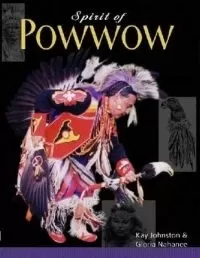Kay Johnston
Kay Johnston is the President of the Shuswap Association of Writers and Festival Chair for Word on the Lake-a Writers' Festival. She is the author of Spirit of Powwow as well as several short stories and poems in KALEIDOSCOPE V, a Shuswap Writers' Anthology. Johnston lives in Salmon Arm and spends her time writing, organizing writing events, and singing in the Shuswap Community Choir. She has a Master's Degree in Counseling Psychology from the University of Victoria, and a B.A in English Literature from UBC.
Books (1)
Synopsis:
Spirit of Powwow has evolved as we have talked with dancers and drummers until we feel we now have a powwow book that goes beyond the usual mere description of regalia and dances. The photography and text cover every component of the powwow, not just the dance competition. The Nahanee family and their friends make this book a very personal experience for the reader as we have maintained the true voices of the dancers, drummers, officials and volunteers throughout as they speak of their experiences and beliefs. You will follow a powwow family and their friends into the dance arbor, learn of their experiences and meet the behind the scenes people who hold the event together. You will see how the powerful circle of elders and youth closes by visiting Chan Es7a7wats (Yes, I Can Do It). You will meet young dancers learning how to dance and how to make their very first regalia as they are being taught about their culture by Gloria. We have tried to create a book that will become a bridge between cultures. Come over the bridge with us. Come into the kitchens and taste Maizy's bannock, help set up the powwow ground, walk tall in the Grand Entry. Mix with the dancers and drummers and listen to them speak to you.
Additional Information
144 pages | 8.60" x 11.20"







